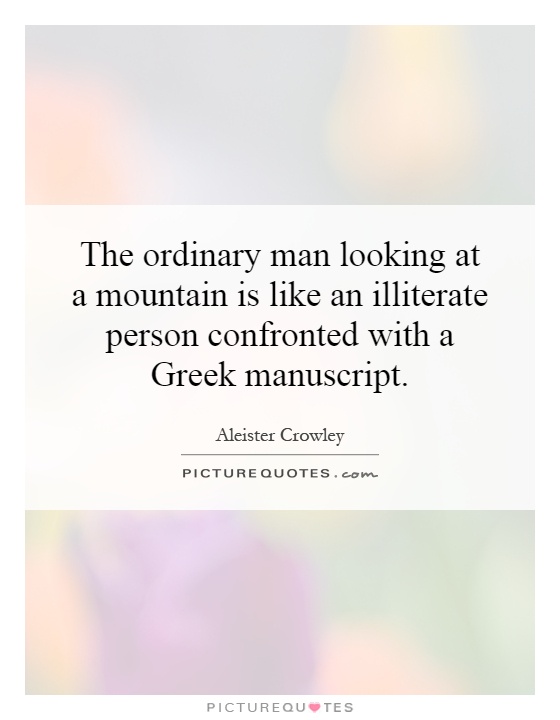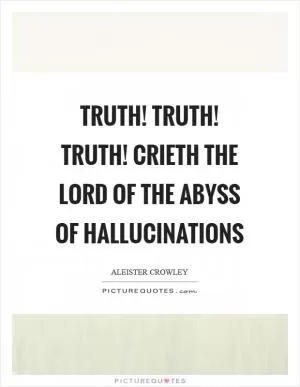The ordinary man looking at a mountain is like an illiterate person confronted with a Greek manuscript

The ordinary man looking at a mountain is like an illiterate person confronted with a Greek manuscript
The quote "The ordinary man looking at a mountain is like an illiterate person confronted with a Greek manuscript" is a powerful analogy that highlights the overwhelming feeling of insignificance and confusion that can come from encountering something vast and complex. In this context, the comparison to a Greek manuscript emphasizes the idea of being faced with something that is completely foreign and incomprehensible to the observer.A Greek manuscript is not only written in a language that most people cannot understand, but it also contains layers of meaning and complexity that require a deep level of knowledge and expertise to decipher. Similarly, a mountain is a natural wonder that can be awe-inspiring in its sheer size and beauty, but it also holds a level of complexity and mystery that can be difficult for the average person to fully grasp.
When an ordinary man looks at a mountain, he may feel a sense of wonder and awe at its grandeur, but he may also feel a sense of confusion and inadequacy in the face of something so vast and unknowable. Just as an illiterate person would struggle to make sense of a Greek manuscript, the ordinary man may struggle to make sense of the mountain before him.
The analogy also speaks to the idea of perspective and knowledge. Just as a person who is well-versed in Greek would be able to appreciate the nuances and intricacies of a Greek manuscript, someone with a deep understanding of geology or mountaineering may be able to appreciate the mountain in a way that the ordinary man cannot. Knowledge and experience can provide a deeper understanding and appreciation of the world around us, allowing us to see beauty and complexity where others may only see confusion and chaos.












 Friendship Quotes
Friendship Quotes Love Quotes
Love Quotes Life Quotes
Life Quotes Funny Quotes
Funny Quotes Motivational Quotes
Motivational Quotes Inspirational Quotes
Inspirational Quotes